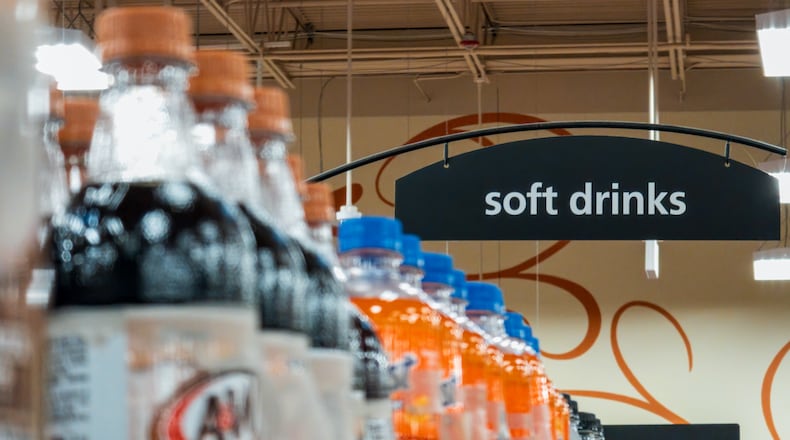Ohio will first need to get permission from the United States Department of Agriculture before making any changes to how the state administers the Supplemental Nutritional Assistance Program, or SNAP. This request comes in the form of a waiver that must be submitted by Oct. 28.
Various states, including neighboring Indiana, have had similar SNAP waivers approved under the Trump administration, but so far, no state has begun implementing the exclusion because of the logistical headache it poses for retailers that participate in SNAP.
“We have talked with other states. I don’t know that I would say any state is really close to implementation,” Ohio Department of Job and Family Services Director Matthew Damschroder said Thursday during the group’s first meeting.
Damschroder, whose ODJFS administers SNAP on behalf of the state, will work alongside a team that includes officials form the state departments of health and Medicaid; representatives from the Ohio Beverage Association, the Ohio Council of Retail Merchants and the Ohio Grocers Association; a doctor and dietician from Dayton Children’s Hospital and Nationwide Children’s Hospital, respectively; and a former member of the U.S. House of Representatives.
The working group spent much of its time Thursday considering the issue that has seemingly brought other states to a standstill: Creating a policy that is feasible for the more than 10,000 Ohio retailers that participate in SNAP.
Damschroder laid out the dilemma to this outlet shortly after Thursday’s meeting: “What are the definitions of things so the state, retailers and consumers know what’s in (and) what’s out? How do retailers then take that information, and, do they put it into an inventory management system? There are some retailers that are still paper-based; what do they have to do? And then the enforcement — whose responsibility is it to police that? Is it anybody’s responsibility?”
In the recent state budget, the legislature approved parameters that would have excluded drinks with “carbonated water that is flavored, contains a food additive, and is sweetened with sugar or artificial sweeteners,” along with drinks that contain certain food dyes, chemical emulsifiers, and carcinogenic additives.
However, DeWine issued a line-item veto on the legislature’s parameters, saying its definitions added “an extra layer of complexity” that would put Ohio’s waiver in danger of being denied by the USDA.
The parameters the state lands on could greatly impact food retailers across the state, many of which are reliant on SNAP purchases. A more complicated definition of what’s allowed and what’s not under Ohio’s SNAP framework could be particularly burdensome for smaller retailers, said Ohio Grocers Association President and CEO Kristin Mullins.
“It could cause them to quit taking SNAP, which would then likely cause them to go under and create food deserts, which is already a problem that we have here in the state,” Mullins told her peers. “So, I do think that’s a big concern.
Damschroder said the group will have to work towards the least onerous solutions.
“Sometimes, in the public policy space, our charge is to come up with the least worst option for doing things, knowing that there’s downsides to anything that we choose to do,” he said.
The working group is set to meet again on Aug. 12, Aug. 21, and Sept. 11.
For more stories like this, sign up for our Ohio Politics newsletter. It’s free, curated, and delivered straight to your inbox every Thursday evening.
Avery Kreemer can be reached at 614-981-1422, on X, via email, or you can drop him a comment/tip with the survey below.
About the Author

